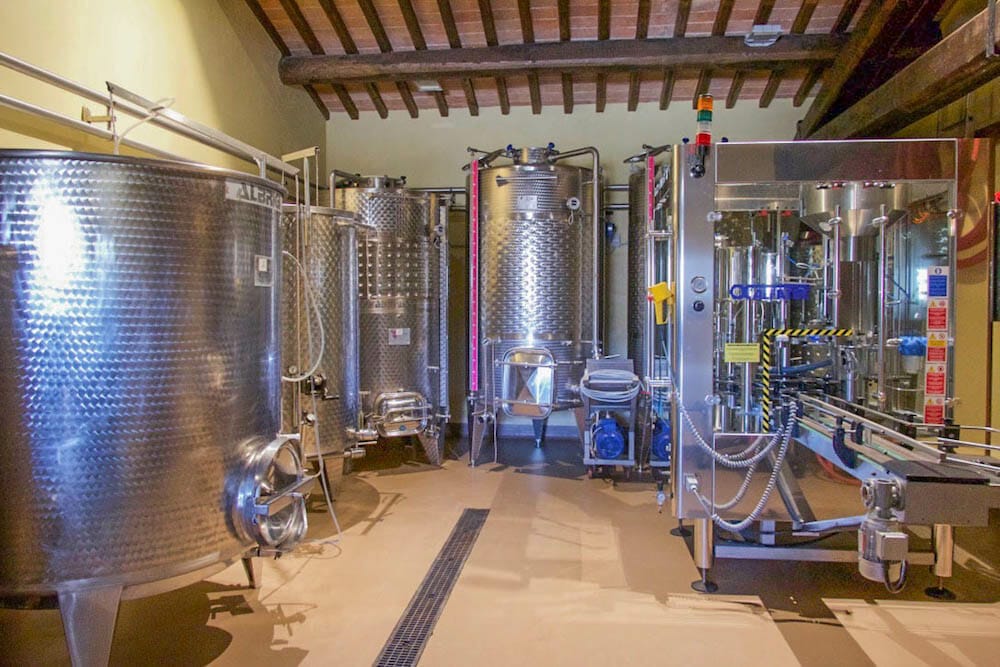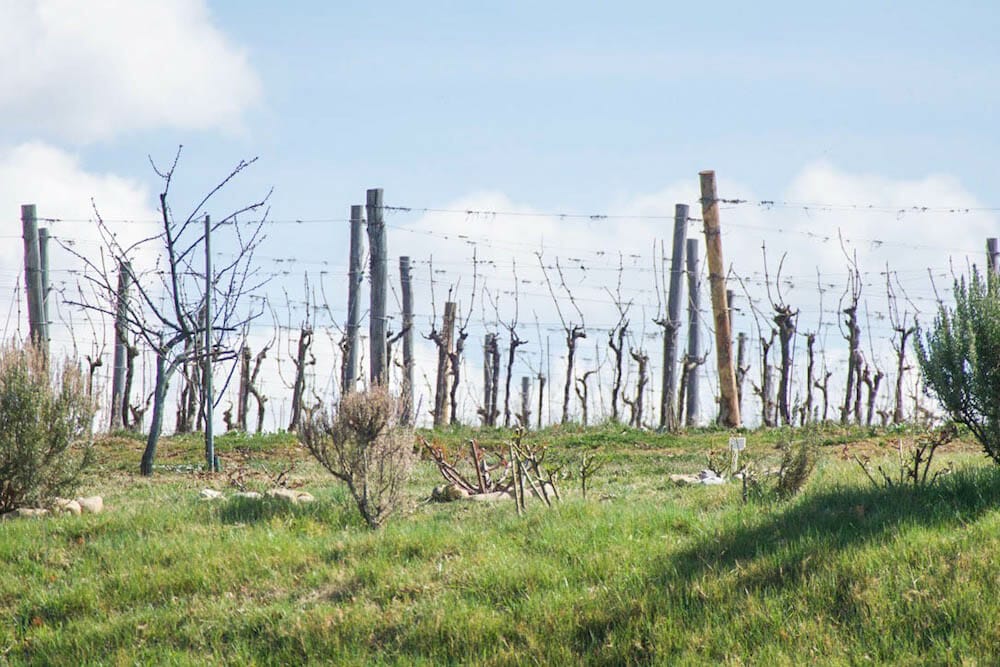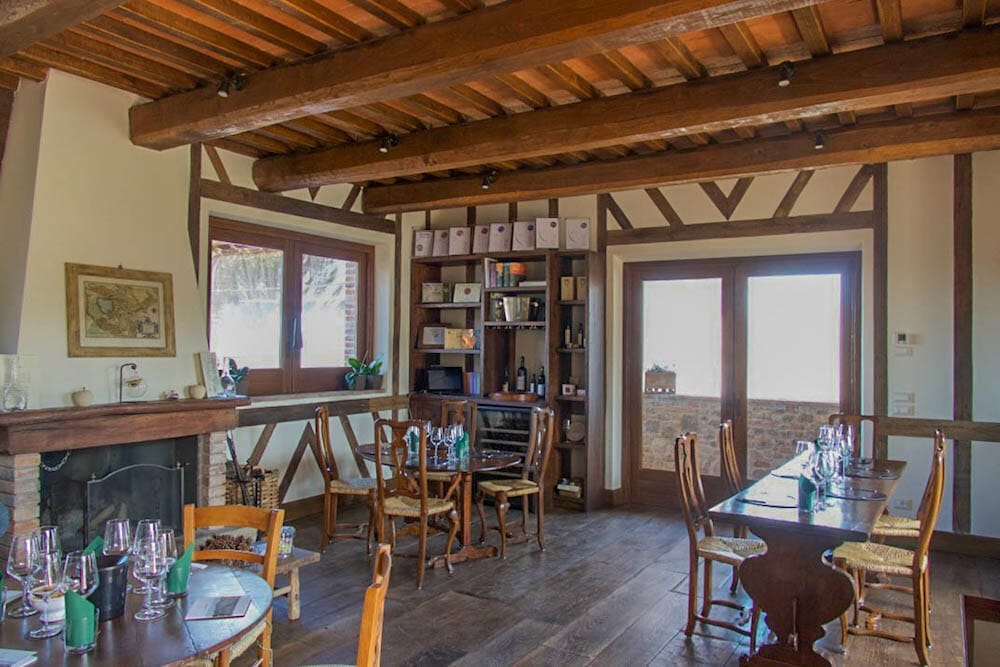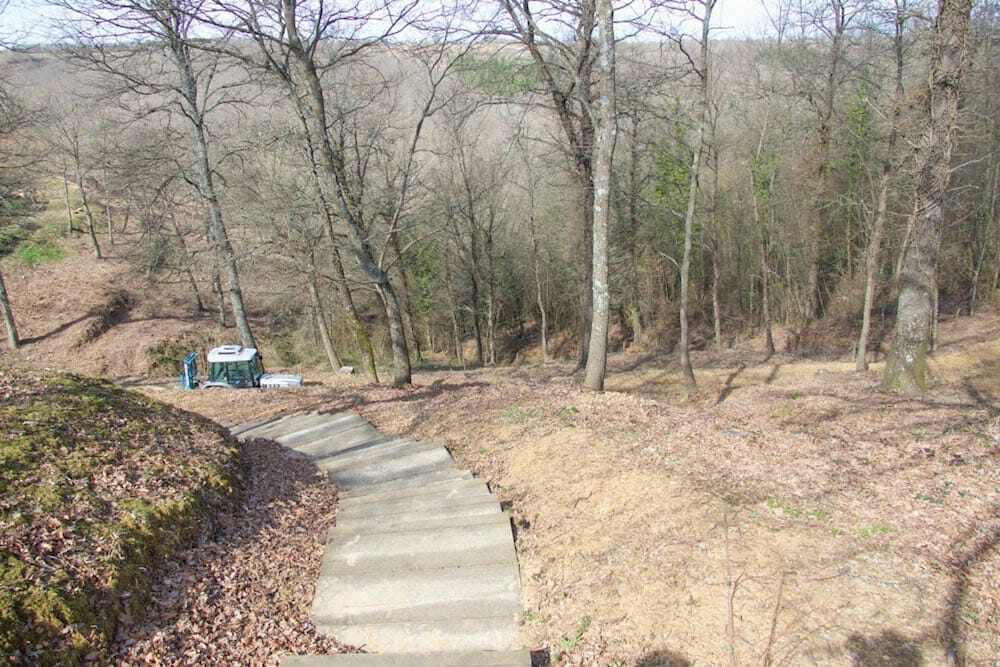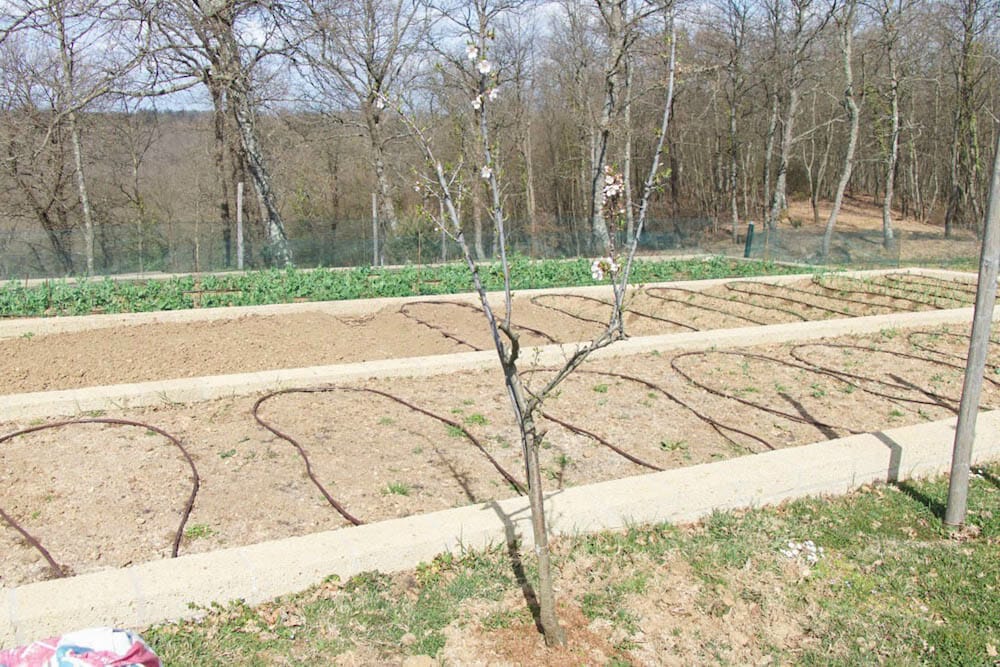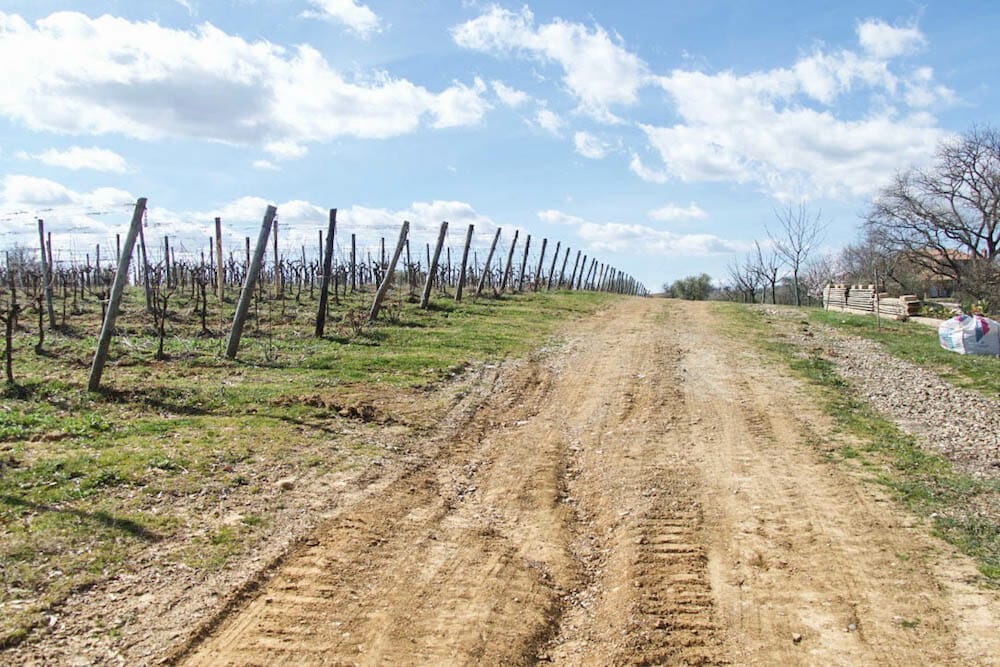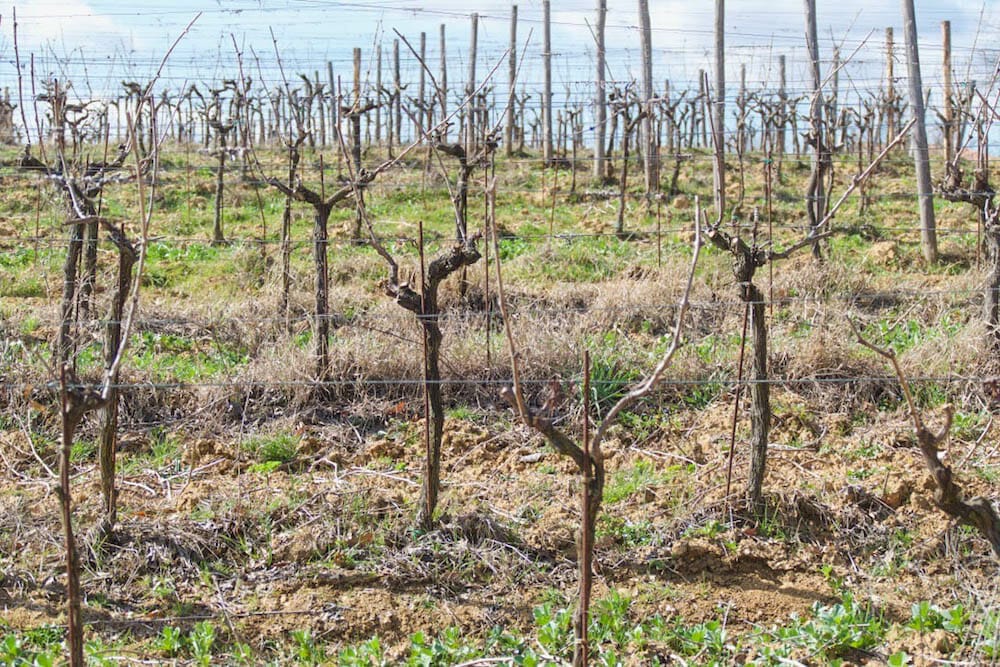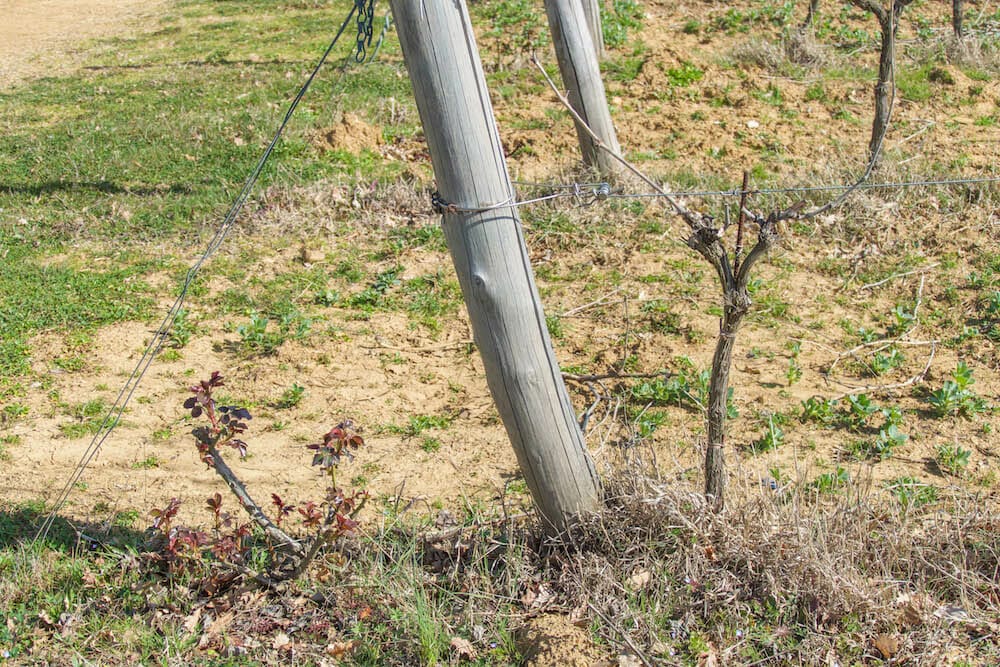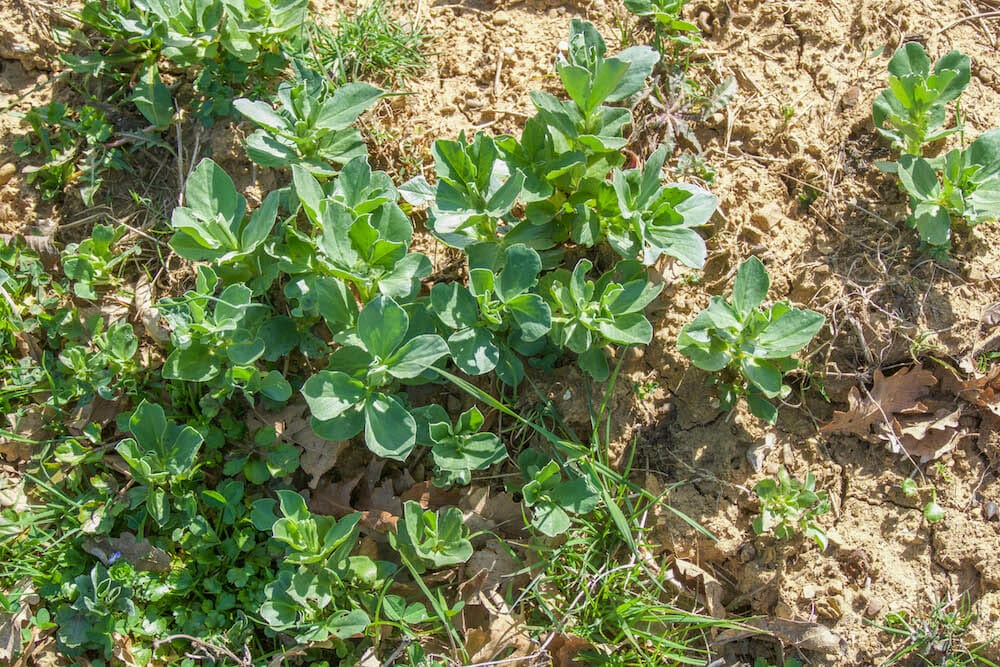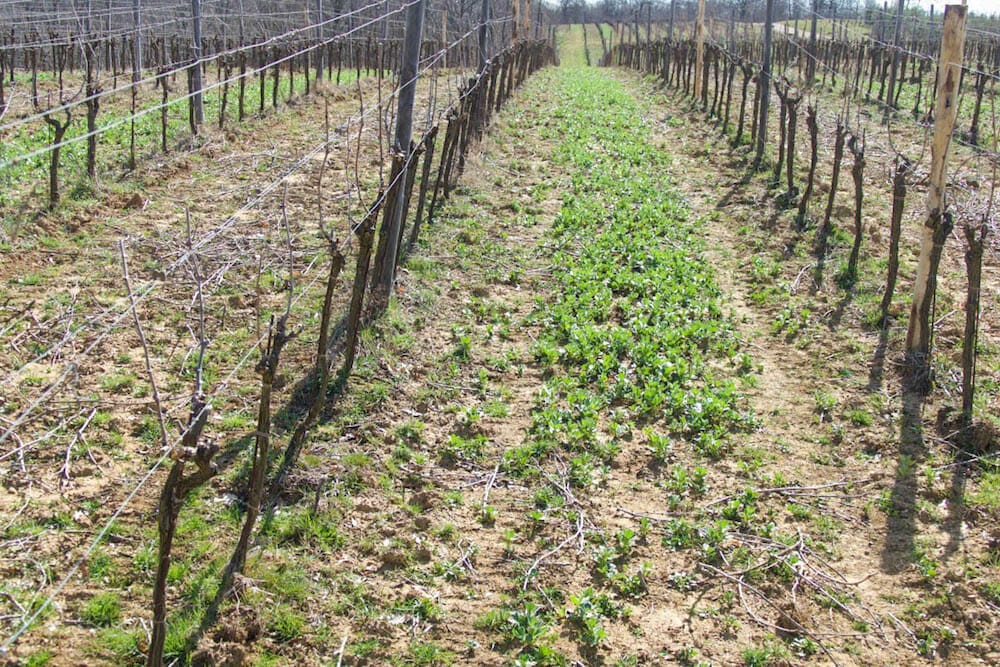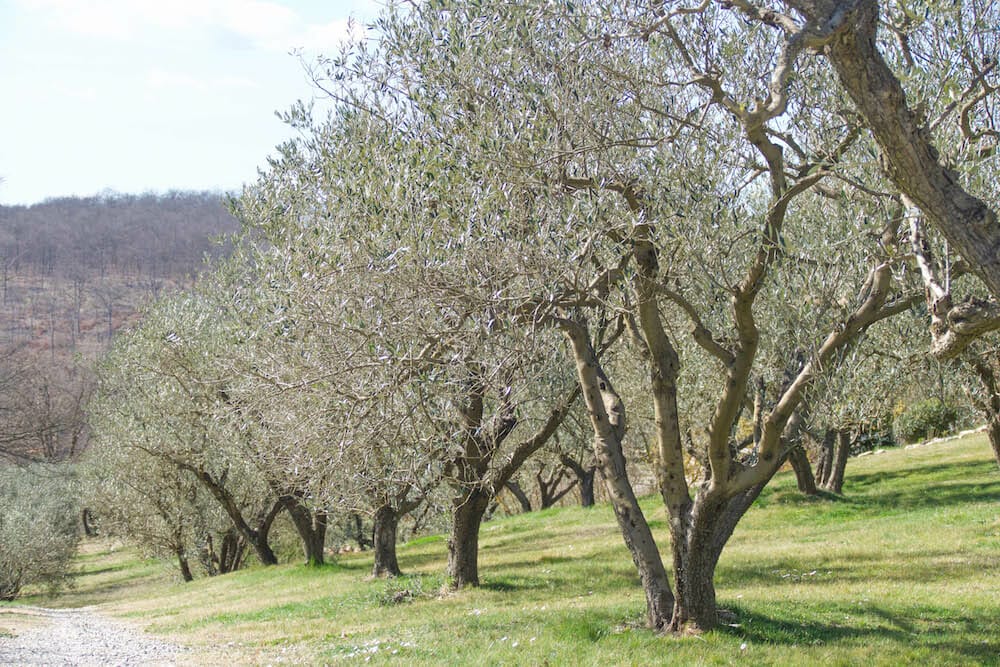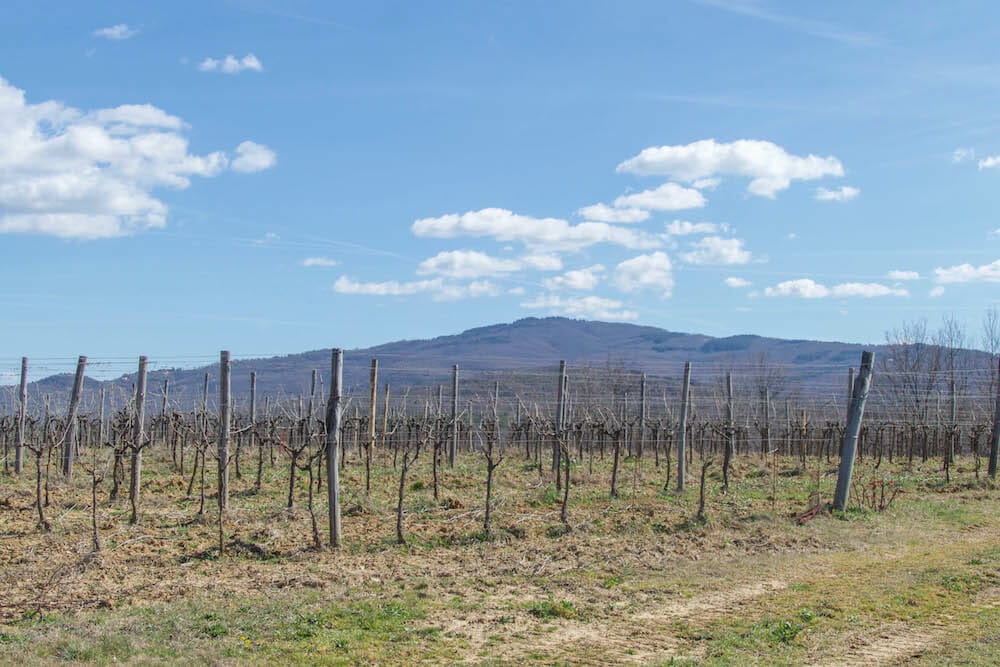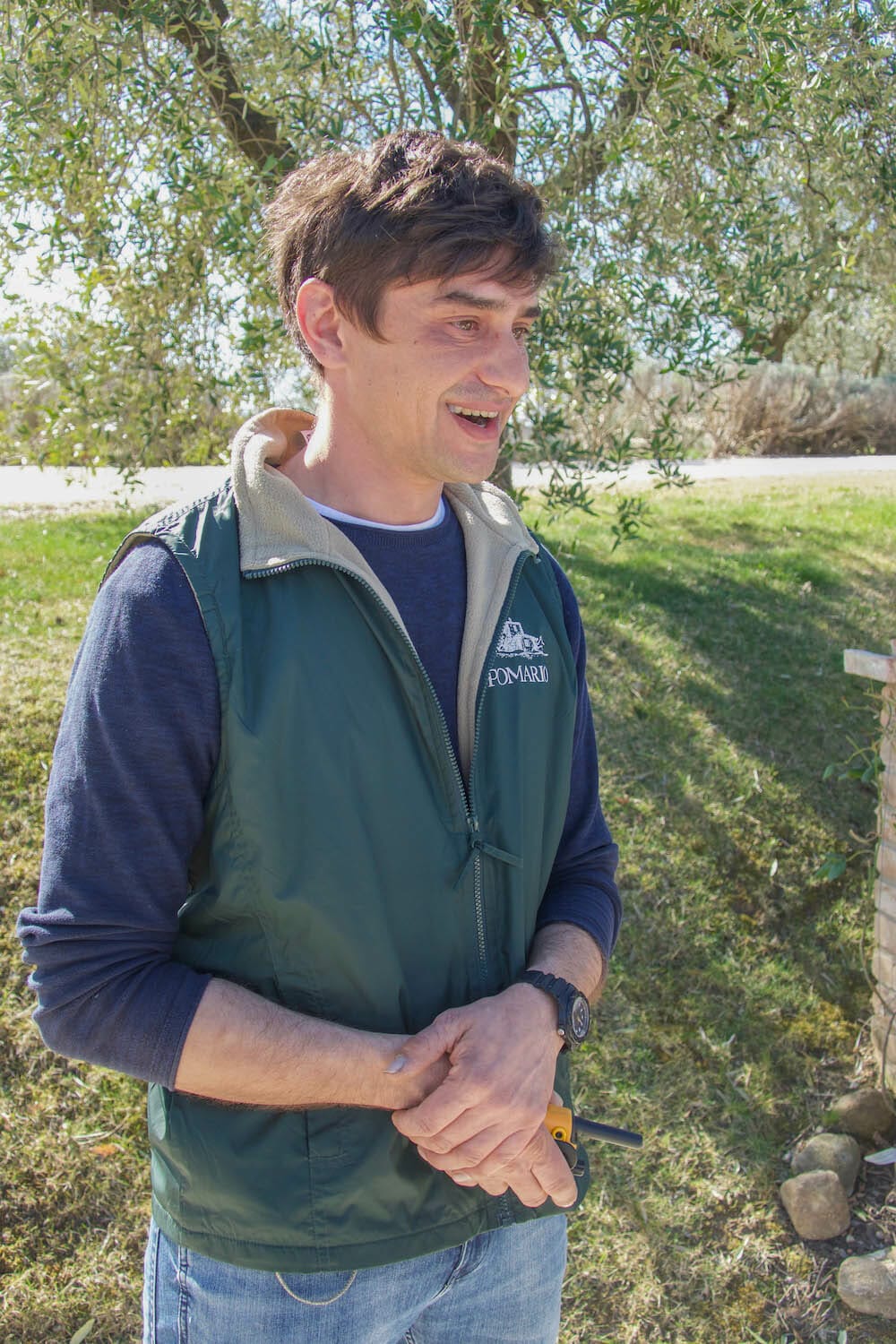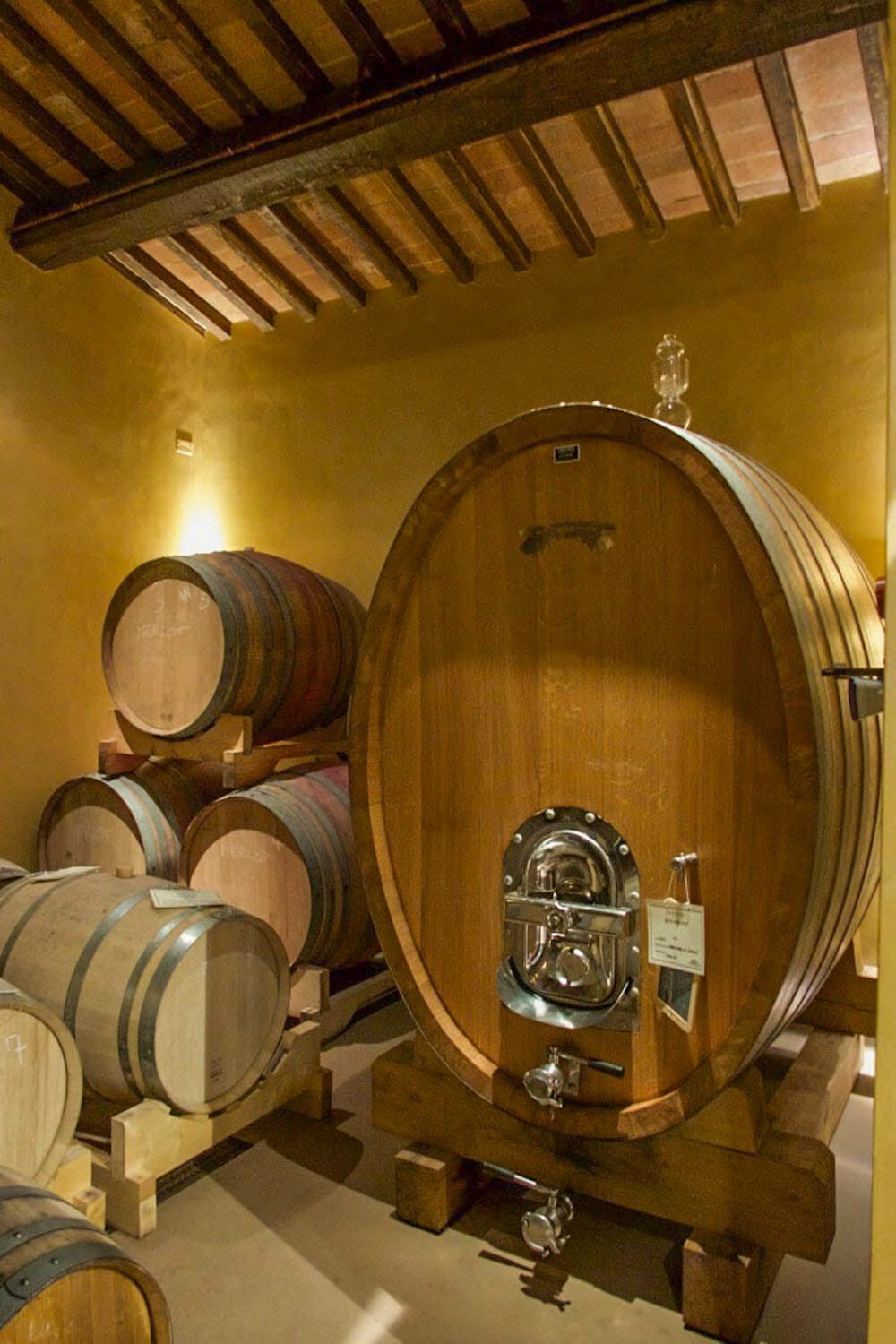POMARIO Tour in Umbria Italy Review – Rediscovering Umbrian Bounty -- organic wine, olives and preservation of ancient fruits and other flora of Umbria
An unschooled urbanite approaching the Pomario vineyards and olive groves might begin to wonder if all that dust being kicked up by your car on the dirt road adversely affects the fruits.
That thought vanishes, and many new ones come rushing in, during a walking tour of Pomario lands with Raffaele Parriani, one member of the eight half men/half women team that passionately tends to the olive trees, vines, barrels aging in the vineyard’s cellar, and the rediscovered flora of this part of Umbria.
Soothing and Gentle Surrounds
Even in stark pre-spring, the landscape is soothing, but Parriani helps decode what we are looking at in fine detail and all the why-fors of the Pomario estate.
That road dust? It’s actually exactly what Pomario owners, Susanna and Giangiacomo Spalletti Trivelli, had sought for years and found in this farm that had been abandoned in the 60s. So far from paved roads you cannot hear cars, you are also far from others’ pollution. This allowed Pomario to function immediately as an organic farm, not having to do the transitioning otherwise required.
Those rose plants at the end of each row of vines? Above and beyond their aesthetic charms, they are sentries akin to the canaries in the mines. If a rose bush gets sick it signals the Pomario team to tend to the vines, using the copper oxides or sulphur oxides as medicine that organic cultivation rules allow.
The fava bean plants? Their deep roots help bring the soil’s nutrients from the depth to the surface.
Why these four varieties of olive trees? Each species thrives in different conditions—hot, cold, dry, wet--- so that the farm’s productivity is more even from year to year.
Why the ring of trees on the perimeter of the fields? The nut rich woods keep the deer and boars – pointed out as the land’s prior residents whom they want to respect and allow to thrive—happy and fed by the trees’ nuts, such that they keep to themselves without crossing the bare space to feast on Pomario’s cultivated bounty.
Why a management team so purposely half male and half female? Unlike most farm teams that are nearly all male, Pomario hopes to optimize the different skillsets of each gender. Parriani examples this, perhaps arguably, by noting that their oenologist is purposely female, and she is the one whoe\se taste decides when the grapes are ready for harvest “because females are the ones who choose the food for the children”.
And then of course there are the many decisions large and small that combine into the cellar protocols to create each of the vineyard’s varieties of wine—the many recipes of when and how to crush the grapes and remove their skins; the large chains used for daily stirs of the aging wine (battanage); when wine is moved from larger round barrels allowing maximum contact between wood and wine or smaller oval barrels where wine and wood contact is minimal; etc.
Pomario quickly established a reputation for award-winning wines
The wines are sent to competitions worldwide, earning their fair share of awards, but Pomario’s staff wants far more. Each year they try to add less sulfite to the wine than the year before. And, Parriani explains, “Our goal is to make the best wine, not just the best organic wine….And we hope to not be unique. As a matter of integrity, we would like to see the organic way of farming as we do, become widespread.”
For those of us enchanted by the thought of the world’s seeds being preserved in Norway’s vaults, the greatest Pomario treasures might be the farm’s collection of fruit varieties that their botanical archeologist Isabella Dalla Ragione has identified for cultivation on the land--- almonds, peaches, plums, pears etc.—that have ancient qualities, instead of the traits of modern varieties which weather refrigerator storage better. These are genetic treasures, such as the Monteleone pears of Umbria, where two of the only six trees on the planet grow now in Pomario. This is not to make better jams! It’s history that is being preserved at Pomario, and with passion.
It’s all hand labor to keep the vines and plants happy and healthy—and very skilled labor at that. Though you cannot come to help harvest or do Woofer duty, the tasting room and tour are a recommended way to feel that passion you then uncork in Pomario’s award winning bottles.
For more information visit the Pomario website
Or, to arrange a tour contact Chiara at Podere Molinaccio Holiday House

